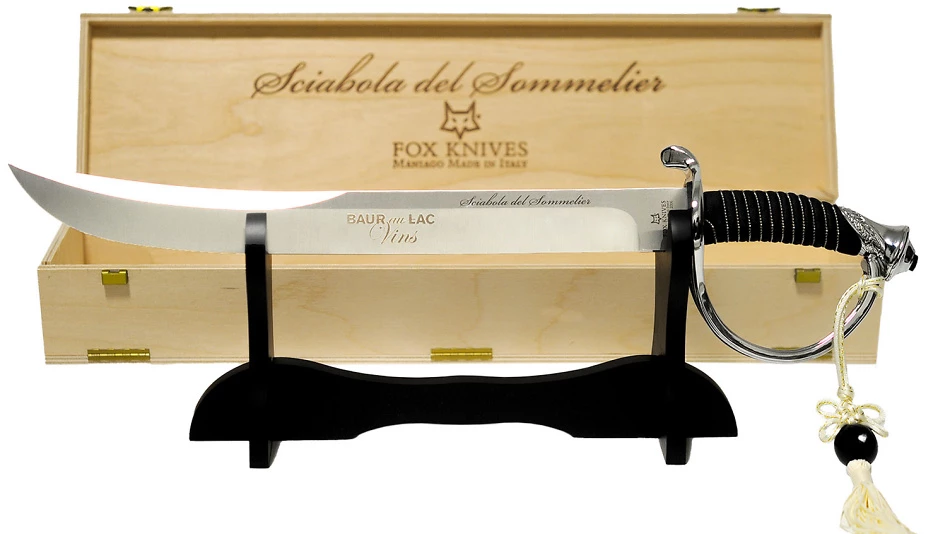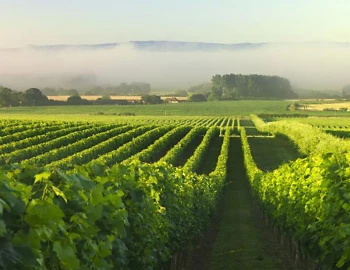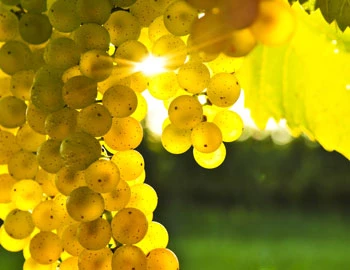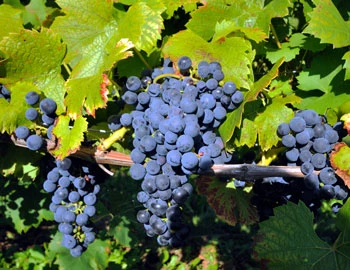Nyetimber Brut Rosé
Sussex, English Sparkling Wine, 750 ml

| Grape variety: | Chardonnay, Pinot noir |
| Producer: | Nyetimber |
| Origin: | United Kingdom / West Sussex |
Description
Fresh berry aromas, a spicy aniseed note and the scent of lavender form its extremely charming bouquet. Its mousse feels soft and creamy, the taste reminds of raspberries, currants and cherries. A hint of buttery brioche accompanies the long finish and brings this special sparkling wine to a wonderful end.
Celebrate the Art of Sabring!

With its elegant design, this champagne sabre is not only an impressive eye-catcher at any celebration and an indispensable tool for stylish sabering, but also the perfect gift for all passionate sparkling wine lovers.
Attributes
| Origin: | United Kingdom / West Sussex |
| Grape variety: | Chardonnay, Pinot noir |
| Label: | Vegan |
| Ripening potential: | 2 to 4 years |
| Drinking temperature: | 10 to 12 °C |
| Food Pairing: | Roast veal with morel sauce, Giant crevettes, grilled langoustines, Vitello tonnato, Apéro riche |
| Vinification: | fermentation in steel tank, bottle fermentation |
| Harvest: | hand-picking |
| Maturation: | long cultivation, on the yeast |
| Maturation duration: | 36 months |
| Volume: | 12.0 % |
| Note: | Contains sulphites |
Nyetimber
For the last quarter-century, England has played a very special role in the world of wines – an exotic in moist and chilly northern Europe.
When you think of England you might think of umbrellas, charm, and bowler hats. Specifically umbrellas, since British weather is famously rainy. Few people know that winegrowing in England is historically documented back to the 7th century. Thanks to the Gulf Stream, the climate is mild enough for certain types of grapes to grow and fully ripen. The change in climate during recent decades has brought some advantages to English winemakers, improving growth conditions and encouraging many to try their luck at winegrowing.

Chardonnay
King or beggar?
Hardly any variety of vine shows such a broad spectrum of quality as the Chardonnay. Its wines range from faceless neutrality to breath-taking class. It is an extremely low-maintenance vine, which explains why it is grown around the world – even in places where it probably should not be. The aromas of the Chardonnay variety are not very pronounced: a bit of green apple, a little hazelnut; in warmer latitudes, also melon and exotic fruits. The wines are often defined by maturing in casks. They develop more or less subtle notes of butter, toasted bread and vanilla. The grapes achieve their highest expression in their region of origin, Burgundy. Its heart beats in the Côte de Beaune: one might think of the plant growth of Meursault or Puligny-Montrachet. With their finesse and complexity, they can survive for decades. Chardonnay also achieves first class in some Blanc-de-Blancs champagnes. It additionally yields great wines in the Burgundian Chablis, and increasingly in Australia and Chile. A simple rule of thumb for pairing with food: When butter and cream are involved, you cannot go wrong with Chardonnay.

Pinot noir
Blueprint of the terroir
No other variety expresses its terroir as precisely as Pinot noir. It is a sensitive, fragile grape. But when it succeeds, it gives the world some of its very greatest wine plants. It especially excels in Burgundy, where it has been cultivated for at least 700 years. Even in the middle ages, it was considered so precious that it was kept separate from other grapes so as to not diminish its value. The finest examples are delicate and fragrant with aromas of cherries and red berries. With maturity, notes of forest floor, leather and truffles enter as well. An irresistible fruity sweetness still shines through, even after several decades. The Pinot noir does well in cool locations: in Switzerland and in Germany, where it is known as Blauburgunder and Spätburgunder respectively; in Alsace and in South Tyrol, in Oregon, New Zealand and Tasmania. Not least, it yields fantastic champagnes. It is a wonderful culinary companion. With its soft tannins and charming bouquet, it meshes with everything, from Güggeli and cheeses to fried fish.



